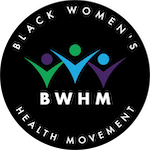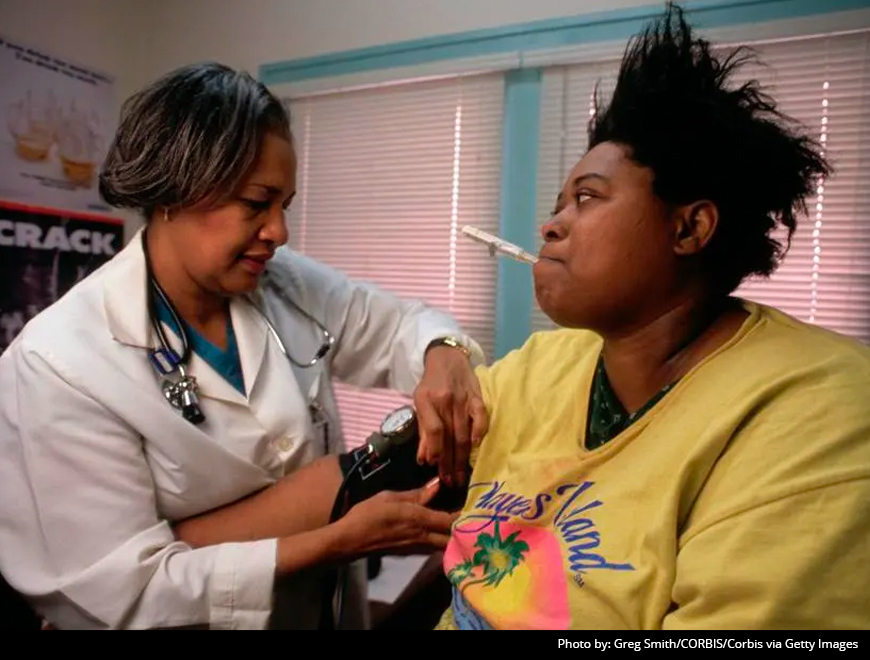Black American Women Experience Health Disparities In Heart Health (Forbes)
Omer Awan, Contributor, Contributor
Black women living in America are nearly 50 percent more likely to have high blood pressure when compared to non-Hispanic White women, according to the United States Department of Health and Human Services.
Heart disease remains the number one cause of death in all women living in the United States. Black American women have an even higher risk of dying from heart disease, and at a younger age, than White women, according to the American Heart Association.
Why is there such a stark disparity in heart health outcomes when comparing Black women and White women in America?
The answer is not straightforward and is likely a result of a multitude of factors.
Black women have the highest rates of high blood pressure, obesity and physical inactivity among all demographic groups in America, according to reports from the Mayo Clinic Health System. High blood pressure, obesity and the lack of physical activity are all known risk factors for developing cardiovascular disease including but not limited to heart attacks and strokes.
Risks factors though do not tell the entire story when understanding the major disparities in heart health among Black women. A major contributing factor is socioeconomic status, with Black American women often experiencing high levels of poverty and lower access to quality healthcare.
As of 2022, 10% of Black Americans did not have health insurance, compared to 6.6% of their White counterparts, according to reports from Kaiser Family Foundation. Limited access to healthcare and financial insecurity can unequivocally result in an inability to pay for medications as well as a reduction in preventive measures such as regular physician checkups that ultimately can exacerbate heart health disparities.
Structural and systemic racism also play a key role in perpetuating health disparities among Black women. In a one-on-one interview, Dr. Leandris Liburd, Director for the CDC’s Office of Health Equity, states, “Systemic racism internalized creates a state of chronic stress, acts against our body, accelerates aging and increases risks for chronic conditions. These include high blood pressure, type two diabetes and heart disease. These things are not under our control. Black Americans often don’t have access to important resources; like safe neighborhoods, insurance, or healthy foods that perpetuate health disparities. This cumulatively adds to the risk.”
It is well known that exposure to stress can lead to increased blood pressure and inflammation, both of which are risk factors for heart disease.
Racial and implicit bias among healthcare providers could also play an important role in advancing disparities among Black women. A large majority of Black women ages 18 to 49 report having at least one of seven negative health care experiences, according to Pew Research Center.
A study published in the American Journal of Emergency Medicine demonstrated that Black patients were 40% less likely to receive medication for acute pain from healthcare providers when compared to White patients.
Addressing these disparities will need a multi-faceted approach, that likely starts with Black women. Tara Robinson, Founder of the Black Heart Association, states in a one-on-one interview, “Black women must stop putting others before themselves. This has been ingrained in our culture, dating back to the time of slavery in this country. We need to stop internalizing grief and stress. It is absolutely ok to put ourselves first. This mindset will ultimately help us eat healthier, exercise and visit our healthcare providers.”
In addition to lifestyle modifications, policy changes to address systemic inequalities in access to health must be a priority for government officials. This means expanding healthcare services in underserved communities and providing affordable options for medications, tests and treatments to marginalized communities who often cannot afford health services in America. This will undoubtedly improve the health disparities many Black women are facing in this country.
Finally, empowering healthcare providers with more education on implicit bias training so physicians can provide more culturally-sensitive care, particularly to minorities such as Black women will go a long way in reducing the glaring disparities in cardiovascular health.
February is Heart Health Month, and the disparities that Black women face in dealing with cardiovascular health is a gentle reminder to all of us that we must do better to protect and care for the people we serve.


